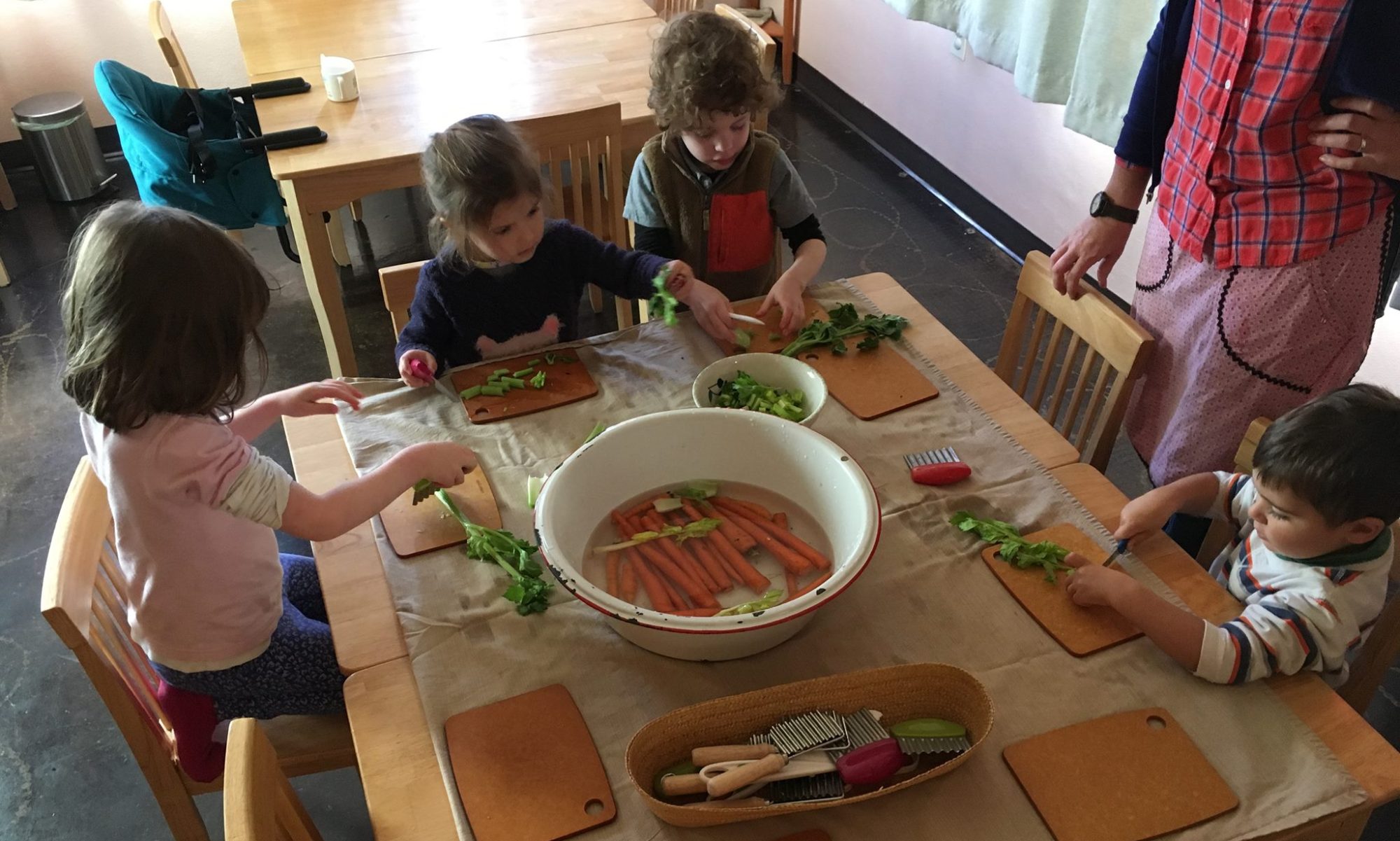Holidays and festivals are rich with meaning and purpose, lending themselves easily as a time and space of tradition and ritual. In honor of this holiday season and the diversity of families we have at Rose Rock, we will take the next several weeks to feature some of their traditions and rituals. These may be traditions of long ago, cherished and kept since childhood, or they may be freshly created for our own children. They may be centered in one festival or holiday, or they may be simple rituals that uplift our daily lives during this time of year. All of them are special ways we create our family cultures. We invite you to relish in them as we do and be inspired to begin your own.

Jesse and I both come from spiritually non-denominational backgrounds with a beautiful hodgepodge of traditions. We have Christmas trees, light candles, hang stocking on our hearth, enjoy merriment and feasting galore, and exchange gifts. My mother was Jewish with Romani flair and her adopted mother was Orthodox. From my youth, I recall receiving small, colorful advent calendars. I delightfully discovered, behind each cardboard door, tiny chocolate treasures.
Over the years, my spirituality and ritual practices have evolved and changed to suite my ever-growing thirst for knowledge and understanding. I have found myself drawn to my Norwegian ancestry, and yearning to incorporate those deeply honored Germanic traditions like Yule, Sunwait and Väntljusstaken, as well as the runes.
Jesse and I celebrate Winter Solstice and Yule on December 21, and we celebrate Christmas with both sides of our families on December 24 and 25. When we had Scarlette, I wanted to share the thrill of advent with her, but also wanted to tie it into our personal celebratory rituals. Behold, the birth of the runic advent. 24 runes of the Elder Futhark and 24 days leading up to Christmas.

I gathered 24 canvas pouches, painted a rune (in glitter puff paint) on the outside of each one, filled it with delicious varieties of German and Norwegian chocolates (Aldi is amazing) and tied them with ribbon to a string hung on our living room wall. On December 1, we open the first pouch and learn all about the rune Fehu, the first rune of the runic alphabet. Each rune has poems, Galdr (songs), and interesting nuggets to discuss. We do this while we enjoy our chocolate.
Scarlette looks forward to opening “the bow one,” which is Dagaz, on December 23rd. The rune looks similar to a bow and she is fascinated by it. I also find this wonderfully synchronistic considering Dagaz is the rune representing Day or Dawn and we are celebrating the return of the sun/Son with this ritual.
Written by Bridgette Slone, wife to Jesse Slone, step-mom to Madison, and mom to Scarlette.


















 With the start of our school year, we welcomed Mama Christina into our community to take the place as teacher in Abbie’s room. Christina comes to us from California with a rich background and certification in Waldorf education. With her gentle and calming presence there has been nary a hiccup in folding her into the children’s lives. Learn more about Mama Christina at our Faculty page.
With the start of our school year, we welcomed Mama Christina into our community to take the place as teacher in Abbie’s room. Christina comes to us from California with a rich background and certification in Waldorf education. With her gentle and calming presence there has been nary a hiccup in folding her into the children’s lives. Learn more about Mama Christina at our Faculty page.








